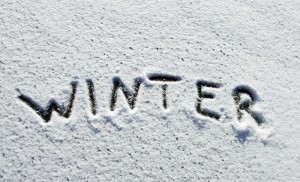Now that November has begun, fall is approaching its halfway point. All of the warm season clothes have been packed away and swapped for jackets, hats and scarves. In place of sunshine, many parts of the country have already experienced snowfall, so staying warm is on everyone’s mind. For people with fireplaces or wood stoves, staying warm could also involve lighting a toasty fire. Around this time of year, many people are scheduling appointments for the annual maintenance of their fireplaces, stoves and chimneys to make sure everything is functioning safely and effectively. This regular servicing is vital for chimney safety and function, especially with the winter weather coming up. The cold, wet weather of winter can be surprisingly damaging to a chimney.
Many people mistakenly believe their chimneys are impervious to the elements. After all, the chimneys were built to survive outside year after year. Although chimneys are constructed with to hold up to the forces of nature, they still require special care to stay strong every winter. In particular, masonry chimneys are particularly susceptible to winter damage. Masonry materials, especially, are very porous. Materials like brick, mortar and concrete all absorb water very easily, and while the absorption of water is fairly innocuous, it becomes an issue once the temperatures start to fall. When freezing temperatures set in, the water begins a continuous freeze and thaw cycle in which the water expands and contracts. The materials that contain water also expand and contract, which degrades the strength of the materials. A saturated masonry chimney, therefore, can suffer from cracks or even collapse after several seasons of this type of stress. A mason can help protect the chimney from this type of damage by applying a special permeable sealant to the outside of the chimney.
Water can also cause problems by entering the chimney, and this happens to masonry and non-masonry chimneys. Rain or snow melting from the warmth of the fire can lead to water seeping into the chimney. The first issue this creates is a rusted flue liner, which can lead to the exposure of the interior chimney structure to water. It also exposes the structure of the home to the high heat of the fire, and this can lead to heat damage including unintentional house fires. The water may also continue down the chimney and rust out the damper assembly or cause water damage to the ceiling and walls surrounding the fireplace. This type of damage can be avoided by asking a mason to install or check the quality of a chimney cap.
While winter can treat your chimney pretty harshly, there are steps you can take to protect it. Start by contacting your local chimney expert. If you live in southern New Jersey, near Mickleton, contact Mason’s Chimney Service and Certified Air Duct Cleaning, Inc. for a professional consultation.

